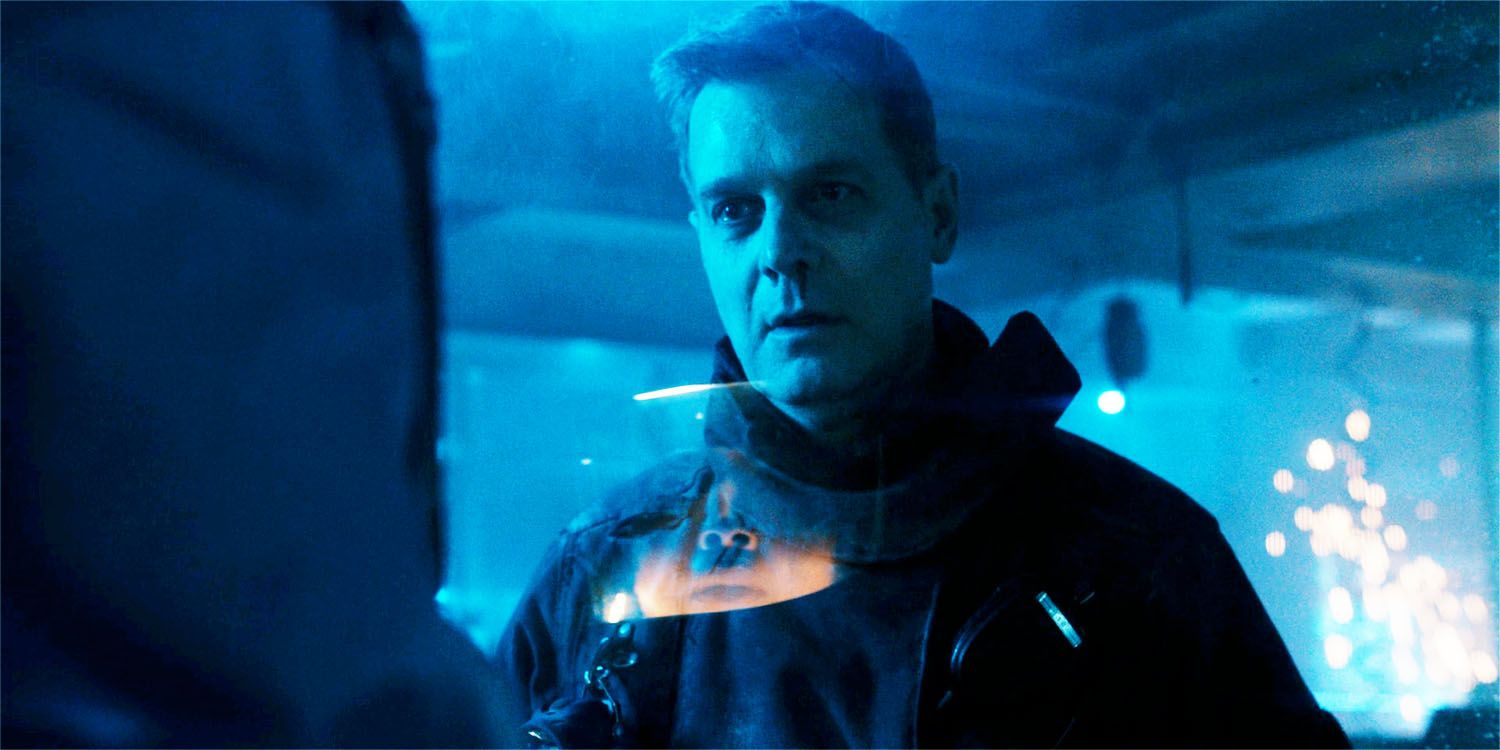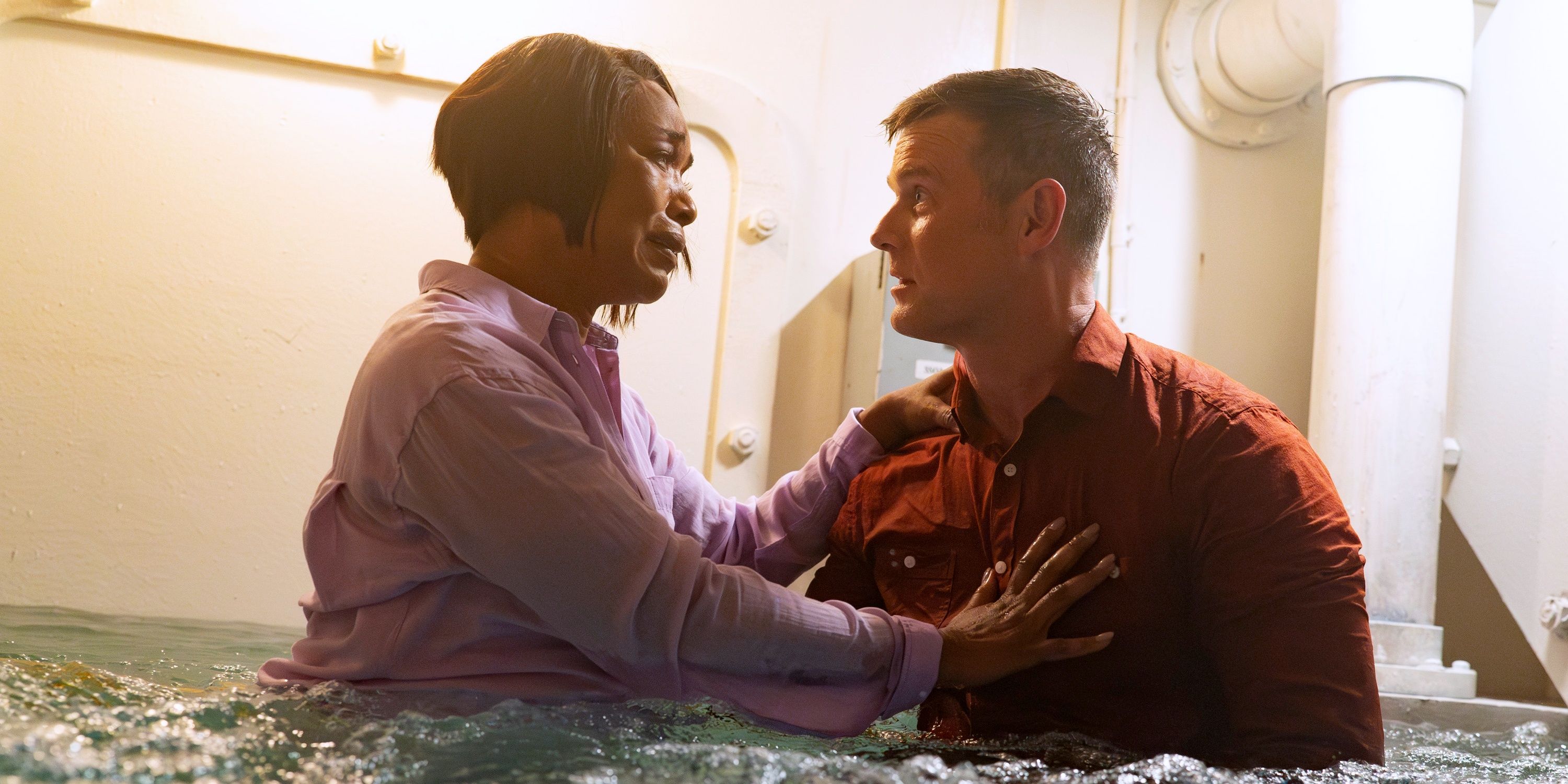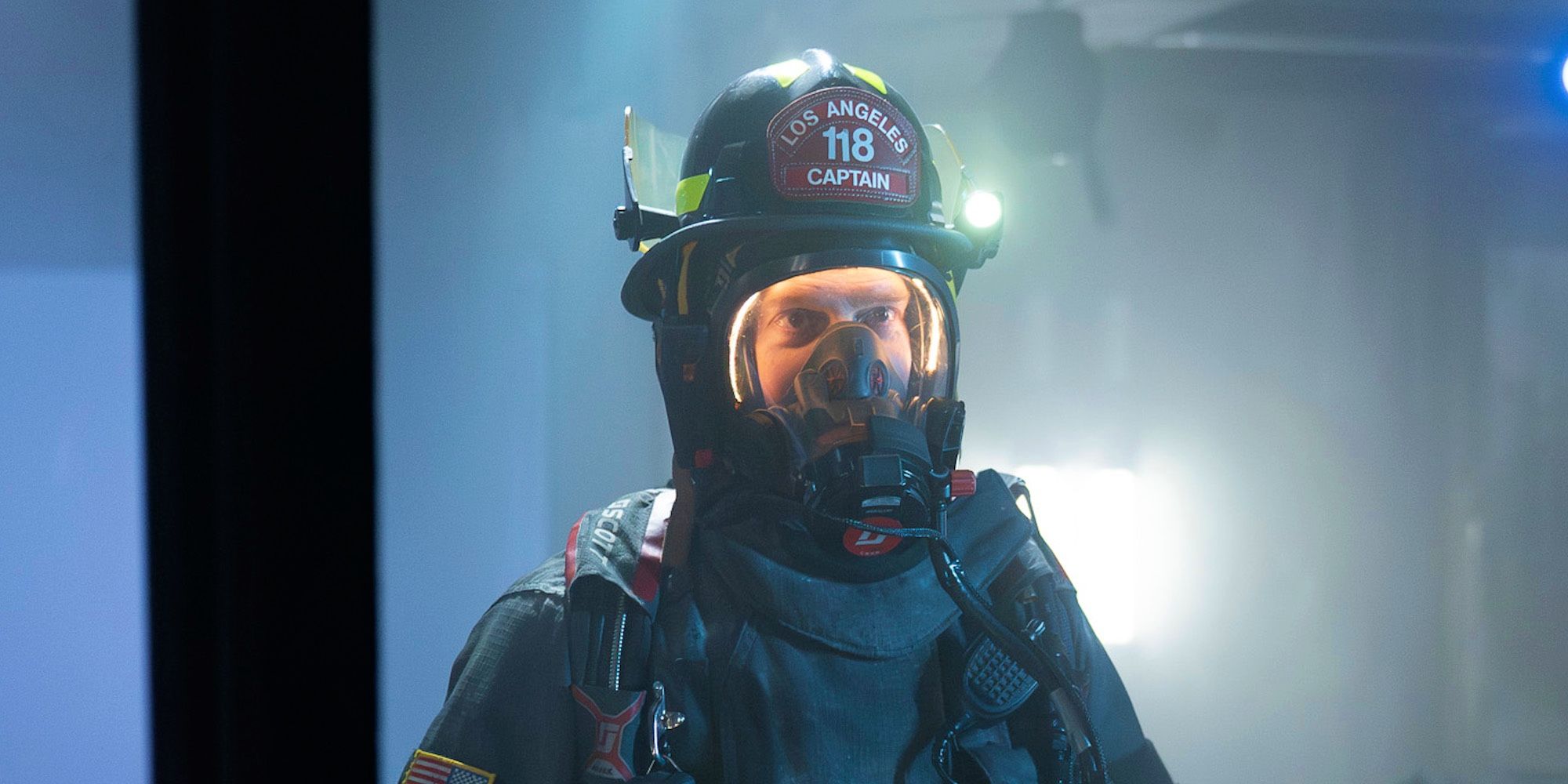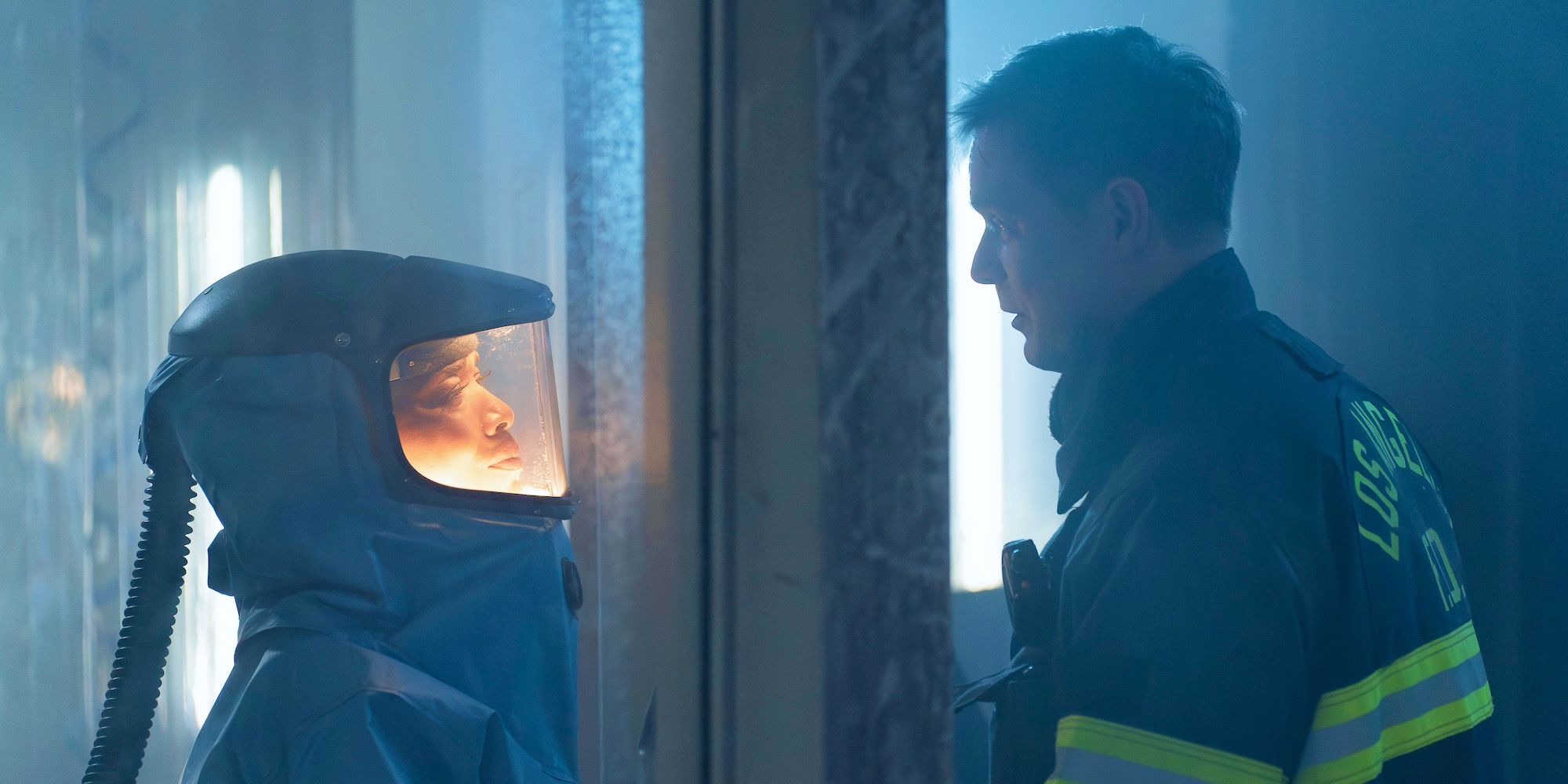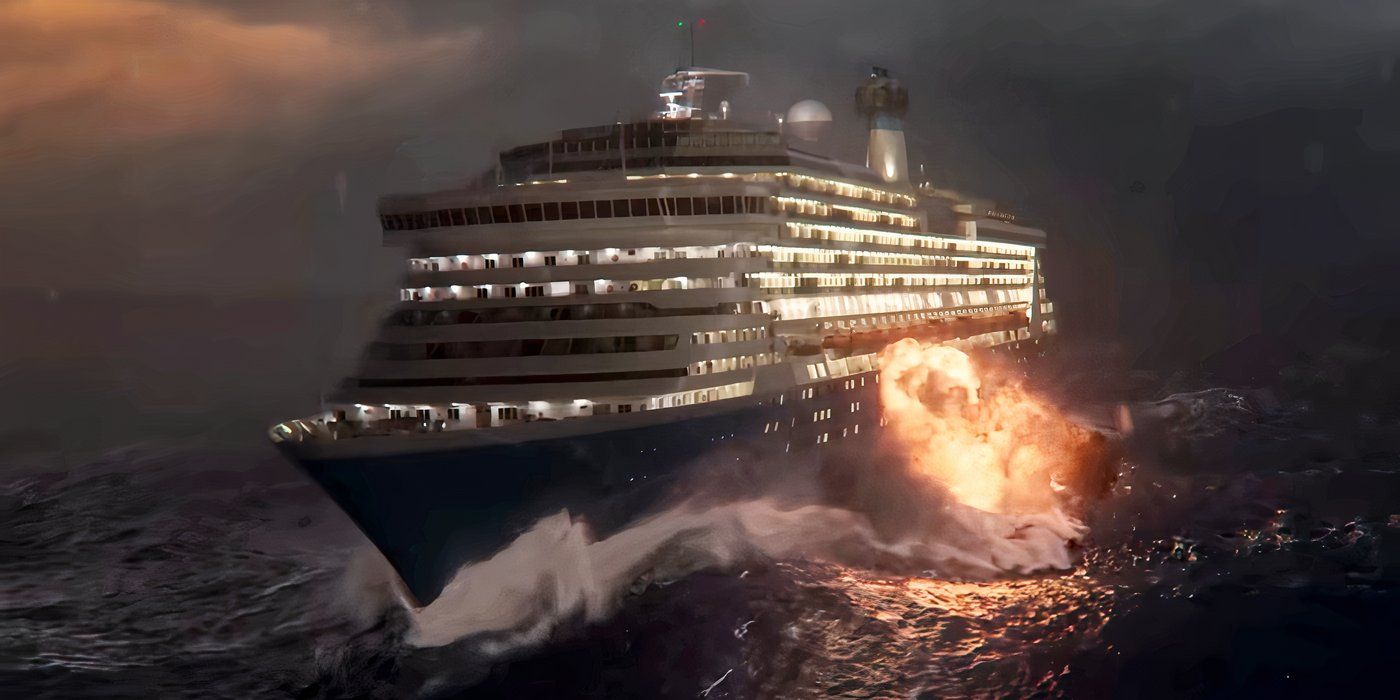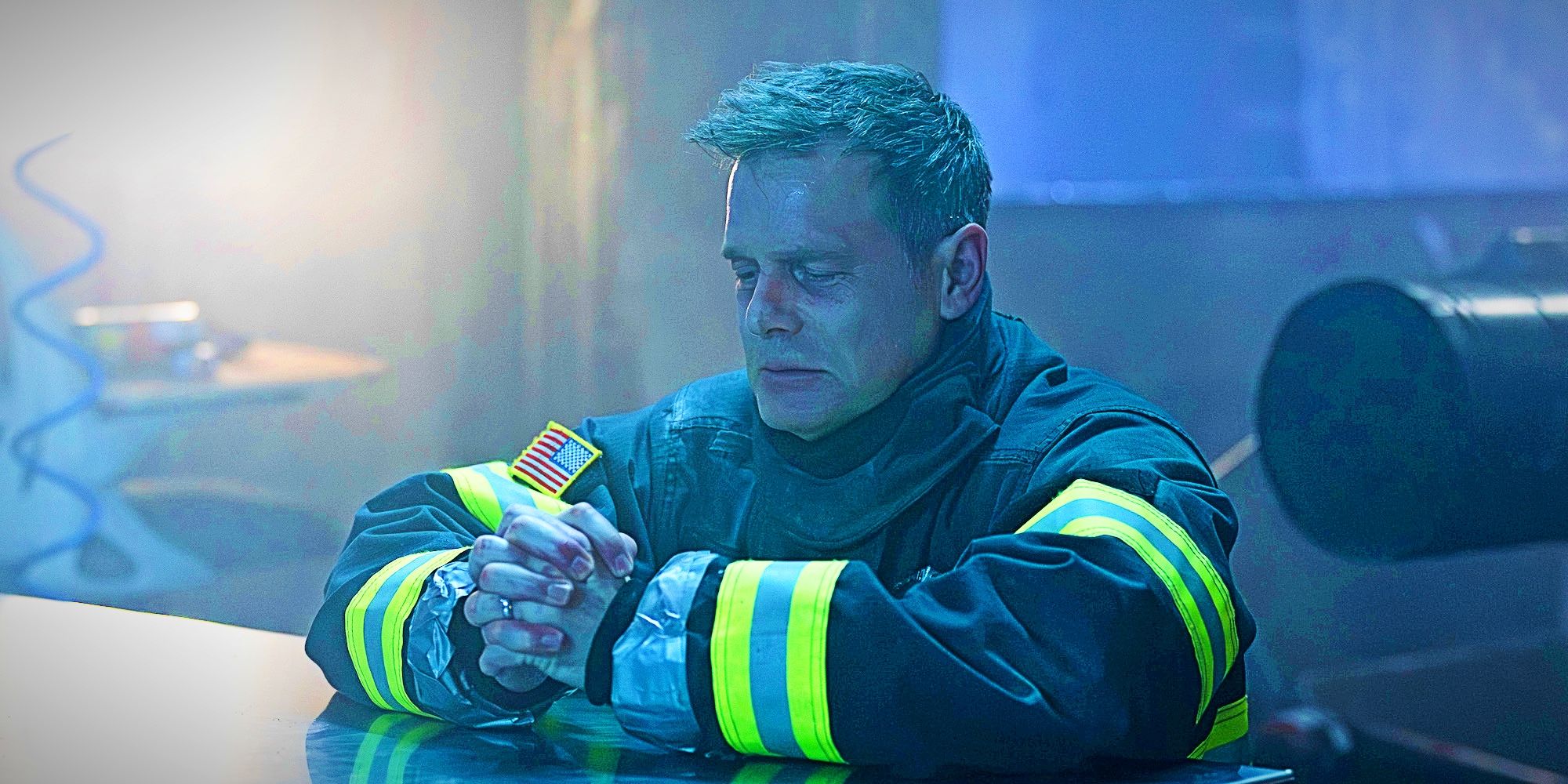That’s not to say the first-responder drama was without any stakes, however. There have been many horrible near-death experiences in 9-1-1 that left lasting impressions on the characters and the audience alike, adding suspense to each season and leaving viewers to wonder who would be next. Still, there was a sense of security in knowing that they were only near-death experiences, and the found family of the 118 would always find its way back to each other. Tragically, this staple of 9-1-1 would be abandoned in season 8, episode 15, “Lab Rats.”
Why Bobby's Death In 9-1-1 Season 8 Is So Divisive
The Fire Captain Suddenly Sacrificed Himself In "Lab Rats"
9-1-1 season 8, episodes 14 and 15 composed a two-part thriller event known as 9-1-1: Contagion, wherein the 118 (sans Buck, who escaped just in time to dodge an explosion) were left quarantined in a research lab that housed a deadly pathogen that caused CCHF (Crimean-Congo hemorrhagic fever). 9-1-1 originally teased Chimney’s death, but it was a mere bait-and-switch, as Athena (Angela Bassett) delivered the antidote in time to save him, unaware that her husband was suffering from the same disease. Bobby hid his symptoms until the 118 evacuated, only saying goodbye to Buck and Athena before suddenly dying.
Backlash immediately poured in following the episode, with critiques ranging from the plot feeling rushed to the death feeling unnecessary. Plenty of discourse persisted long after the episode’s initial airing, with each passing day seemingly adding more fuel to the fire. There are many genuinely upsetting aspects to Bobby’s death, including how it reduced the central character to a simple twist ending. Furthermore, Bobby’s suicidal past in 9-1-1 was seemingly ignored entirely, despite it adding a distressing layer of depth to his martyrdom. Bobby’s death was so poorly executed, many believed it was fake until the season 8 finale.
Everything was falling into place for Bobby and Athena to live out the rest of their lives together in domestic bliss, only for that idyllic dream to be cruelly ripped away without any forewarning.
Peter Krause Wanted Bobby To Die A Year Earlier In 9-1-1
The Season 7 Premiere Had A More Obvious Build-Up
While Bobby’s death was frustratingly out-of-the-blue in season 8, the opening emergency of 9-1-1 season 7 laid a detailed foundation for a potential death— or, as Peter Krause envisioned, two potential deaths. In one of 9-1-1’s most intense disasters, Bobby and Athena begin season 7 on the cruise ship from hell. What’s meant to be a late honeymoon is tainted by criminals overtaking the ship, the vessel capsizing, and a hurricane threatening to engulf the surrounding area. In 9-1-1 season 7, episode 2, Bobby and Athena lock themselves in a room that’s rapidly filling with water, a seemingly hopeless situation.
“As an audience member, you almost hope they die together. I was filming it and thinking, ‘Let’s just Romeo and Juliet this thing right now.’ I know the show’s gotta go on, but we’re never going to be able to top this.”
Although many comparisons were made to Titanic (1997), the cruise ship arc in 9-1-1 season 7 was inspired by The Poseidon Adventure (1972).
Nevertheless, the three-episode cruise ship arc could have easily ended with at least one major character's death— in fact, if the storyline were playing out on any other show, it likely would have. At the time, 9-1-1 stood out from its many procedural peers for that precise reason: the 118 encountered dangerous situations, both absurd and unimaginably traumatic, but they always survived and healed together as the family they were. Its optimistic undercurrent was a major selling point for 9-1-1, but upping the ante with a death in the main cast could still have worked with a more deliberate plot.
Which 9-1-1 Crisis Would Have Been A Better Death For Bobby
Both Are Devastating Scenarios, And There Were Pros & Cons To Each
All episodes of 9-1-1 are streaming on Hulu.
By killing Bobby at the tail end of 9-1-1 season 8, the first-responder drama sidesteps this issue by dedicating the final three episodes of the season to the aftermath of Captain Nash’s death, from his funeral to his widow selling what was supposed to be their forever home. Still, Bobby’s actual death in “Lab Rats” came across as downright careless, with the bulk of season 8 feeling pointless as a result. 9-1-1 set up fruitless storylines that would never be resolved, going through the trouble of creating a convoluted plot to reinstate Bobby as captain and re-introduce his estranged mother.Yet, there’s a secret third contender that would have been a crushing but comprehensible death plot. The 9-1-1 season 7 finale offered another opportunity for Krause’s Shakespearean ending when Bobby pulled Athena out of their burning house and immediately collapsed due to a cardiac event. With some slight tweaks, Bobby dying after saving Athena from a fire could have been a harrowing full-circle moment, bringing the character’s journey to a natural end without sacrificing his personal development. Admittedly, Bobby dying would have always felt too soon, but 9-1-1 may forever regret prioritizing shock value over a proper send-off.Enjoy ScreenRant's primetime coverage? Click below to sign up for our weekly Network TV newsletter (make sure to check "Network TV" in your preferences) and get the inside scoop from actors and showrunners on your favorite series.
